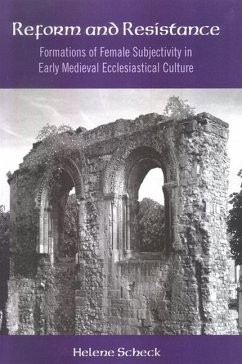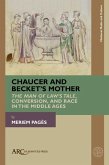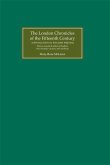Honorable Mention, 2010 First Book Prize presented by the Society for Medieval Feminist Scholarship
The early Middle Ages were a vibrant period rich with possibility for both men and women. Reform and Resistance explores the relationship between gender and identity in early medieval Germanic societies, centering mostly on competing perceptions of female subject formation in times of conversion, reform, and resistance. While women played an active role in the spread of Christianity during the Middle Ages, their freedoms were often restricted by the Church during periods of reform, when uniformity and conformity were important. Helene Scheck's inquiry extends beyond one specific region or historical moment through two centuries and three diverse Germanic regions: Carolingian France, late Anglo-Saxon England, and Ottonian Saxony. Each of these moments exhibits distinct yet interconnected stages of conversion and reform, different stages of cultural amalgamation out of which various possibilities for female subject formation emerge. The book also connects with current conversations about the interrelatedness of power, knowledge, and subjectivity, opening new possibilities for the study of women in early ecclesiastical cultures.
The early Middle Ages were a vibrant period rich with possibility for both men and women. Reform and Resistance explores the relationship between gender and identity in early medieval Germanic societies, centering mostly on competing perceptions of female subject formation in times of conversion, reform, and resistance. While women played an active role in the spread of Christianity during the Middle Ages, their freedoms were often restricted by the Church during periods of reform, when uniformity and conformity were important. Helene Scheck's inquiry extends beyond one specific region or historical moment through two centuries and three diverse Germanic regions: Carolingian France, late Anglo-Saxon England, and Ottonian Saxony. Each of these moments exhibits distinct yet interconnected stages of conversion and reform, different stages of cultural amalgamation out of which various possibilities for female subject formation emerge. The book also connects with current conversations about the interrelatedness of power, knowledge, and subjectivity, opening new possibilities for the study of women in early ecclesiastical cultures.
Dieser Download kann aus rechtlichen Gründen nur mit Rechnungsadresse in A, D ausgeliefert werden.









